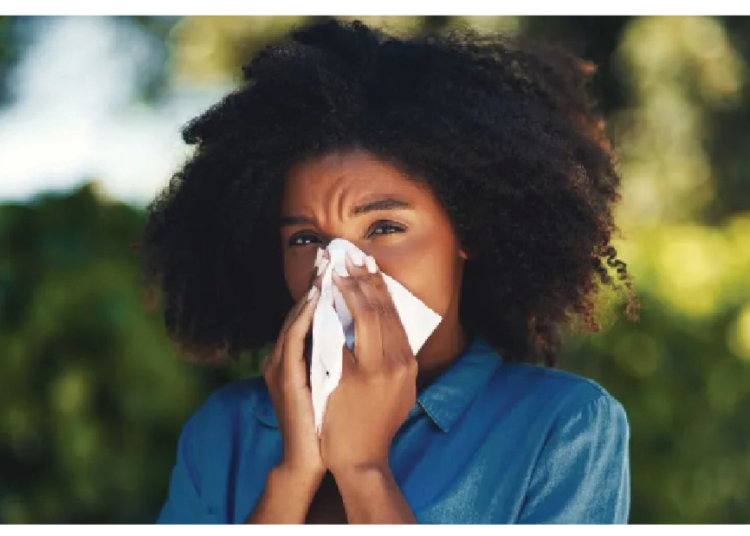“I have an allergic reaction when I eat melon soup” sounded like a joke till Majorie Konye was rushed to an emergency ward of a general hospital. We often take allergies as a not-so-serious thing but are ignorant of how severe it can get when it’s not handled on time and effectively. The good news is, if you know what you’re allergic to, it makes it easier. “Allergies occur when your immune system overreacts to a substance, called an allergen, that is usually harmless. Allergens can be found in dust, pollen, pet dander, food, and more” John Hopkins Medicine.
In this episode of Health Situations, we will explore the different allergies. To bring awareness to the fact that allergies exist and should not be taken for granted. Identifying causes can help streamline the occurrences of health symptoms. These allergies include;
Drug Allergy: Have you ever had drugs prescribed and after taking them you noticed that you had a swollen face? A drug allergy is an immune response to a medication that causes an allergic reaction. It can occur with any type of medication, including prescription, over-the-counter, and herbal” Mayoclinic. Types of reactions for drug allergy. Immediate: Occurs within 1–6 hours of taking the medication. Non-immediate: Occurs more than 24 hours after taking the medication. Anaphylaxis: The most severe type of reaction that requires immediate medical attention. Severe cutaneous adverse reactions (SCAR): A non-immediate rash that can be life-threatening. Types of reactions. Immediate: Occurs within 1–6 hours of taking the medication. Non-immediate: Occurs more than 24 hours after taking the medication. Anaphylaxis: The most severe type of reaction that requires immediate medical attention. Severe cutaneous adverse reactions (SCAR): A non-immediate rash that can be life-threatening.
Food Allergy: “A food allergy is an immune system response to certain proteins in food. Symptoms can range from mild to severe and can include hives, swelling, vomiting, and difficulty breathing. A food allergy is an immune system response to certain proteins in food. Symptoms can range from mild to severe and can include hives, swelling, vomiting, and difficulty breathing” Food and Drugs Administration. Mild reactions can be treated with non-prescription antihistamines. Severe reactions, called anaphylaxis, can be life-threatening and require immediate medical attention. Common triggers: eggs, cow’s milk, peanuts, tree nuts, sesame, soy, wheat, fish, and other seafood. Make sure to know your triggers and alert everyone around you about your food allergies.
Contact Dermatitis: “Irritants are substances that directly damage the skin’s outer layer” John Hopkins Medicine. Substances that directly damage the skin’s outer layer, examples include battery acid, bleach, chlorinated water, drain cleaners, kerosene, and detergents. Always be mindful of substances and stay clear of them.
Anaphylaxis: “A severe, life-threatening allergic reaction that can occur rapidly and requires immediate medical attention. It is also known as anaphylactic shock” John Hopkins Medicine Causes include: Insect bites or stings, such as from bees, wasps, or ants, certain foods, such as eggs, milk, peanuts, shellfish, tree nuts, sesame, and soy, some medications, such as penicillin or aspirin, latex.
Seasonal Allergies: Also known as hay fever or allergic rhinitis, occur when your immune system overreacts to allergens in the air. Symptoms include: Itchy, watery eyes, runny or stuffy nose, sneezing, coughing, itchy throat, headaches, sinus pressure, wheezing, tiredness, and dark circles under your eyes.
Allergies are more than minor inconveniences—they can be life-threatening if ignored. From drug allergies to food sensitivities and severe anaphylaxis, allergic reactions vary in intensity, making awareness and preparedness crucial. Knowing your triggers can be a lifesaver. If you have food allergies, always check ingredient labels, inform those around you, and carry necessary medications like antihistamines or an epinephrine injector. For drug allergies, communicate with healthcare providers to avoid harmful prescriptions. Skin irritants and insect stings can also cause severe reactions, so staying cautious and recognizing early symptoms can prevent emergencies. Allergies are real, and they deserve serious attention. By identifying triggers, seeking medical advice, and taking preventive measures, we can minimize risks and ensure better health outcomes. Do not wait for an emergency—stay informed and stay safe.





